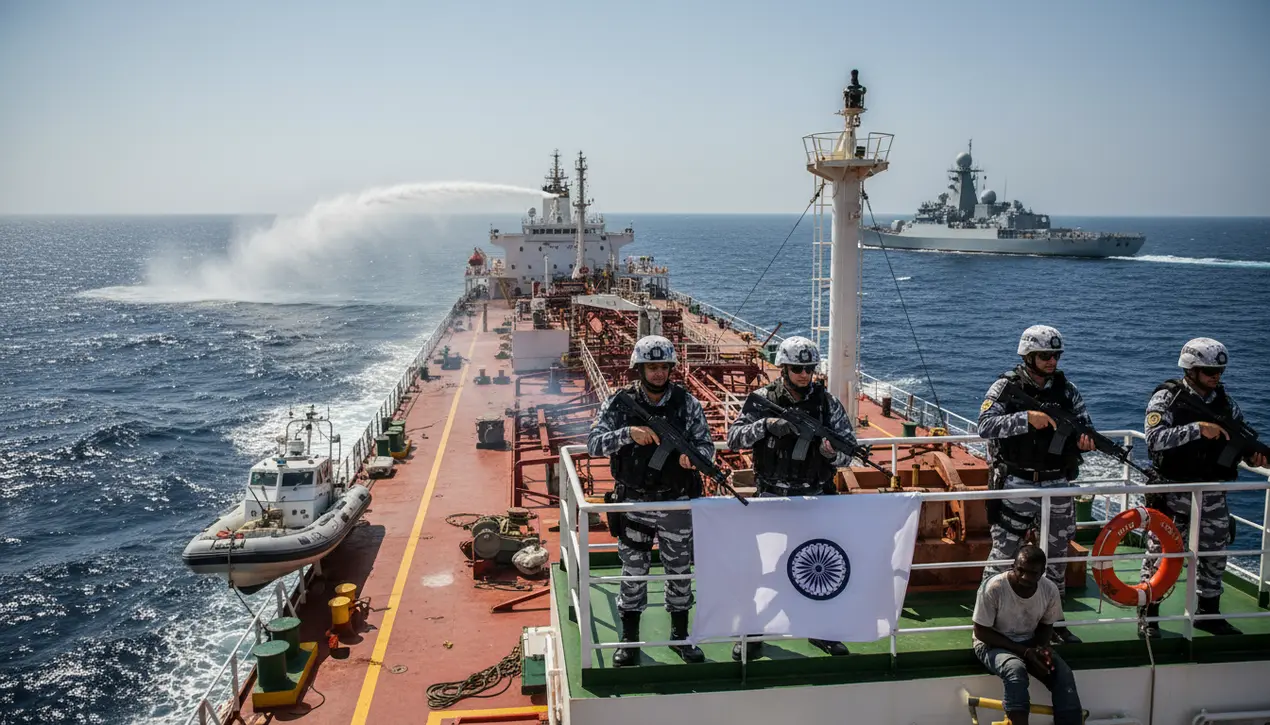
Politicsconflict & defenseMilitary Operations
EU and Indian navies rescue tanker from Somali pirates.
OL
Oliver Scott
2 hours ago7 min read3 comments
In a coordinated maritime operation that signals a stark return to a threat many had hoped was consigned to history, European Union and Indian naval forces successfully intercepted and liberated a commercial tanker from the clutches of Somali pirates. This incident, while resolved without reported casualties, serves as a chillingly familiar flashpoint, ripping open old wounds in global shipping security.The economic calculus of this resurgent menace is terrifyingly clear; as documented by the Oceans Beyond Piracy monitoring group, the peak of Somali piracy in 2011 inflicted a staggering €6 billion drain on the global economy, a figure that includes a corrosive €138 million paid directly to criminal syndicates in ransoms. This isn't merely a cost of doing business; it's a direct transfer of wealth to networks that destabilize entire regions.The strategic implications are profound. We must analyze this not as an isolated event, but as a potential leading indicator of a systemic failure.The withdrawal of intense international naval patrols in the Gulf of Aden, combined with rising regional instability and a shift in global naval focus to other hotspots like the Red Sea, has created a critical security vacuum. Pirates are, above all, opportunistic risk analysts; they have clearly recalculated the probability of interdiction and found it acceptably low.The operational tempo of this attack suggests sophisticated planning, likely involving mothership operations far from the Somali coast, a classic tactic from their previous playbook. The immediate consequence is a near-certain spike in war risk insurance premiums for vessels transiting these waters, a cost that will inevitably be passed down the supply chain to consumers worldwide.Furthermore, this event forces a brutal scenario-planning exercise for commercial shipping lines: do they reroute around the Cape of Good Hope, adding thousands of nautical miles and burning significantly more fuel, or do they gamble on armed security details and the hope of naval protection? For the EU and Indian navies, this successful rescue is a tactical win but a strategic warning. It demonstrates functional interoperability, yet it also exposes the ad-hoc nature of the current response.The long-term risk is a re-establishment of pirate safe havens on the Somali coast, which would require a costly and politically complex counter-insurgency-style operation to dismantle—a scenario no world power currently has the appetite for. The key variable to watch now is the reaction of other state and non-state actors in the region. Will this embolden other militant groups? Will China's PLA Navy, with its base in Djibouti, take a more proactive role, altering the geopolitical balance? The high seas off the Horn of Africa have once again become a chessboard, and this rescued tanker is the opening move in a dangerous new game.
#Somali piracy
#EU navy
#Indian navy
#maritime security
#featured
#tanker hijacking
#rescue operation
Stay Informed. Act Smarter.
Get weekly highlights, major headlines, and expert insights — then put your knowledge to work in our live prediction markets.
Comments
Loading comments...
© 2025 Outpoll Service LTD. All rights reserved.